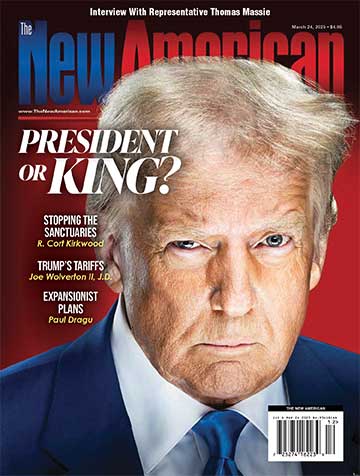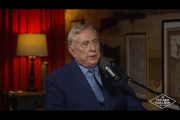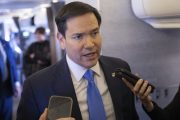
During an interview with the French-based AFP news service in Caracas on February 8, Juan Guaidó, the president of the National Assembly of Venezuela and leader of the political forces opposing President/strongman Nicolás Maduro, did not rule out the possibility of authorizing U.S. intervention to help force Maduro from power.
Guaidó told AFP he would do “everything that is necessary … to save human lives,” but acknowledged that U.S. intervention is “a very controversial subject.”
“We’re going to do everything that has a lower social cost, that generates governability and stability to deal with the emergency,” said Guaidó.
President Trump issued a statement of support for Guaidó on January 23, stating that he was “officially recognizing the President of the Venezuelan National Assembly, Juan Guaidó, as the Interim President of Venezuela.” Trump’s statement continued, in part:
I will continue to use the full weight of United States economic and diplomatic power to press for the restoration of Venezuelan democracy. We encourage other Western Hemisphere governments to recognize National Assembly President Guaidó as the Interim President of Venezuela, and we will work constructively with them in support of his efforts to restore constitutional legitimacy. We continue to hold the illegitimate Maduro regime directly responsible for any threats it may pose to the safety of the Venezuelan people.
Guaidó’s openness to U.S. intervention was publicly criticized by Representative Ro Khanna (D-Calif.) “Mr. Guaido, you can proclaim yourself leader of Venezuela but you don’t get to authorize US military interventions. Only the US Congress can do that. We will not,” Khanna tweeted.
Khanna is a liberal who scored only 30 percent on The New American’s most recent “Freedom Index,” but her statement about only Congress being allowed to authorize U.S. military interventions is constitutionally correct. However, if the United States intervenes in Venezuela, it will not be Guaidó’s fault if Trump ignores Congress and authorizes military force unilaterally. It is unfortunate that this constitutional point has been repeatedly ignored by both Republican and Democratic presidents in recent years.
One of the few American political voices who has consistently opposed U.S. intervention in places such as Afghanistan, Iraq, and Syria without a congressional declaration of war has been former U.S. Representative Ron Paul (R-Texas). Paul could best be described as a libertarian-leaning constitutionalist and a solid non-interventionist.
Paul was recently quoted by RT as questioning the possibility of U.S. involvement in removing Maduro from power. “Where do we get the moral authority to be the decider?” Paul asked. “I think it’s rather ironic for our government to say they want to take care of Venezuela … by having a coup and threatening them with military violence because they’re not democratic enough!”
Paul said that U.S. intervention in Venezuela’s affairs is not only hypocritical, but “unwise, very dangerous, it will be costly, it’s against our rules, and if they pretend that we have to go in because we want to spread American values, those aren’t my values!”
Image: Screenshot of goarmy.com
Related articles:
White House Recognizes Guaidó as Venezuela’s Interim President While Demonstrators Protest Maduro
Venezuela Legislature Wants Maduro Out; Brazil Recognizes Guaidó as President
Venezuela’s Marxist President Maduro Inaugurated for Second Term




